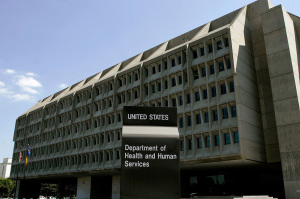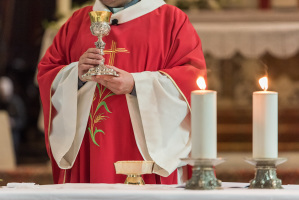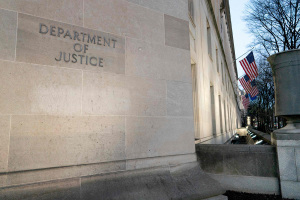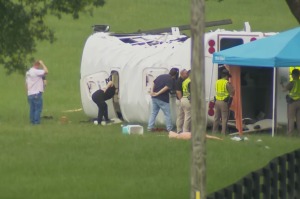'Ask God for their protection': Demonstrators march through the rain to stand with persecuted Christians
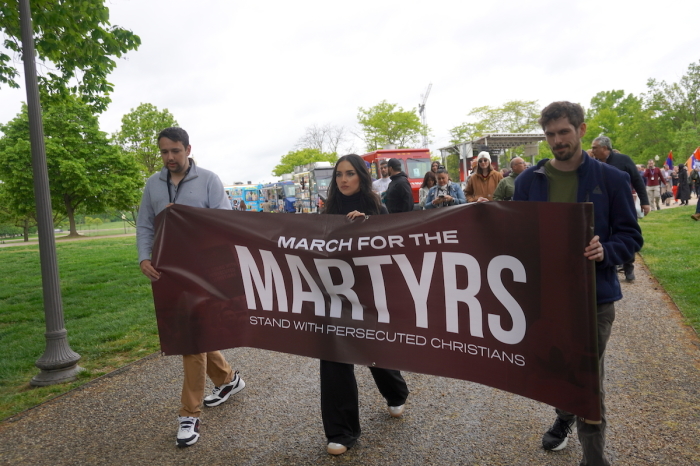
WASHINGTON — Pouring rain didn't stop demonstrators from marching in the nation's capital on Saturday to stand in solidarity with persecuted Christians globally, with some asking why the American Church isn't doing more to spread awareness.
Dozens gathered for the fourth annual March for the Martyrs on the National Mall, with many carrying flags representing the countries they are supporting in the mission to overcome global brutality against believers.
After worship and speeches encouraging Christians from all denominations to advocate for their persecuted brothers and sisters, the crowd marched from 17th Street and Constitution Avenue to the Museum of the Bible.
"I think that with all that's going on in the world and with Christianity, I just had to be here to hear the speakers," D.C. resident Carrol Monaco told The Christian Post, adding this was her first time at the March for Martyrs.
"I was expecting more people to be here. Maybe it's because of the weather. I just think it's very important that we bring awareness to this. Christians are being persecuted, even today."
"It's just something that we need to be more aware of and more sensitive to," she added. "I think events like this are vital because it raises sensitivity. I think it's possible that people just don't realize what's going on."
According to the global persecution watchdog organization Open Doors, which monitors persecution in over 60 countries, over 360 million Christians live in areas of the world where they face high levels of persecution or discrimination for their faith in Christ. In some countries, owning a Bible or converting to Christianity can send someone to prison or put them on death row.
March for Martyrs founder Gia Chacón told CP she was inspired by the March for Life, the annual pro-life rally in Washington, D.C., launched after the Supreme Court's 1972 Roe v. Wade ruling to call for an end to abortion. Today, the March for Life is attended by tens of thousands each year. March for Martyrs started in 2020 in Long Beach, California, during the height of COVID-19 pandemic.
"I thought we should be doing the same thing for our persecuted brothers and sisters around the world and show them our solidarity and advocate on their behalf," she said. "We need to pray for persecuted Christians and ask God for their protection and for their comfort."
As a devout Catholic, Monaco said events like March for Martyrs help make people more aware of persecution impacting Christians globally and helps spread the Gospel of Jesus Christ.
"We have to try to counter the persecutions that are occurring. My faith is a journey, and I'm still on this journey. It really is about living the way, the truth, and the life of Jesus Christ each and every day. I know it's a struggle for a lot of people," Monaco said.
"I struggle with it sometimes. I ask the question: 'Why? Why is this happening?' I don't understand it. But you have to have faith. The Christian faith is about helping each other along on that journey."
Monaco believes one way that Christians can begin to alleviate persecution is to help spread the Word of God as love.
"That's what He is. God is love. And it's about spreading the love of God each and every day. And I think that is a message that gets missed a lot, and I think that needs to be emphasized everywhere, Church outside of church. God is love, and He gives us His love. It's up to us to spread His love in any way we can," she said.
'Opened my eyes'
Another D.C. resident, Patrick Jordan, attended the event to support persecuted Christians in Lebanon. He told CP that no weather — rain or shine — would have stopped him from attending.
"I saw this as a very important event and it called to me, and here I am. When I sailed back from Europe to America, my dad's friend was Lebanese, and he actually opened my eyes to what happened to that corner of the world during the civil war, and how just beng Christian you'd get rounded up and killed," Jordan said.
Jordan said his father's friend told him about one occasion when a group of Lebanese Christian friends organized a garbage cleanup as a way to maintain God's green earth, and many were murdered due to their faith.
"It was pretty shocking as a 12-year-old to hear that. This was a very nice guy, and I couldn't imagine anyone doing that just for your faith. This guy had no ill will towards others," he said. "That just opened my eyes to certain dark areas. It's great to see that people at this event want to shine a light on that."
Jordan said that events like the March for Martyrs are crucial to raise awareness.
"I was very fortunate to have met my dad's Lebanese friend. How many people are going to have that opportunity to have their eyes opened wide to the atrocities taking place across the globe when it comes to persecuted Christians?" Jordan said.
"These events are so important to let other people know that there are people hurting out there, and they need your help to survive. That's why everyone is here today. I would love to keep being a part of this every year."
Jordan said he allows his faith to inform how he treats others. He cited Matthew 5:44, where Jesus advises followers to "love your enemies and pray for those who persecute you."
"It's a pretty confusing world. I like to reflect on what God wants me to do, and that helps me temper whatever part of my humanity that may not be good to others. But, once I give myself over to the Lord, it brings more light to the world," Jordan said.
Although he hasn't been severely harmed for his faith in Christ like some people have faced overseas, he said societal opposition to the Christian faith made him think twice about becoming a teacher.
"I was training to become a high school teacher in public schools. The persecution I faced made me feel guilty about being a Christian as someone training to be a teaching professional. We were advised not to bring our faith into the classroom," Jordan said.
"This dissuaded me from becoming a teacher at all. I knew that I couldn't really represent that part of me. It felt like I couldn't really be myself, and it dissuaded me from my whole career. I would have loved to be a teacher."
Jordan now works as a nurse, where he is better able to express his faith when helping treat his patients back to good health.
"I think the persecution against Christians can be alleviated by just sort of notifying someone that there's a bear outside your cave. The correct thing to do is to say: 'Hey, this exists.' And should you be afraid of the bear? Yeah, maybe. But how do you prepare for that?" Jordan said.
"I hope that these organizations can tell these people. 'Hey, there are hostile militants that are against you due to your faith.' How do you overcome this issue?"
Christians are not doing nearly enough as they should be doing to combat anti-Christian hate crimes nationally, Jordan contends.
"I mean, if you look at every church, [this issue] is not on their site. They have the rainbow flag. They don't have Christ on the front. Churches are totally gone now. I think churches need to start to realize we are Christians," Jordan said.
"They keep focusing on these little political issues. You have to be above that and say: 'No, we're trying to build something that's for a church for eternity,' not something to get us through the next election year."
'Why is the Church not paying more attention?'
Chacón hopes the march brings "attention to the global crisis of Christian persecution."
"During that [first year in 2020], we saw an increase in Christian persecution. And after my extensive travels overseas working with the persecuted, I just couldn't help but wonder why is the Church in the United States not paying more attention to what's happening to our brothers and sisters? Why is the world turning a blind eye to the human rights abuses against Christians because of their faith."
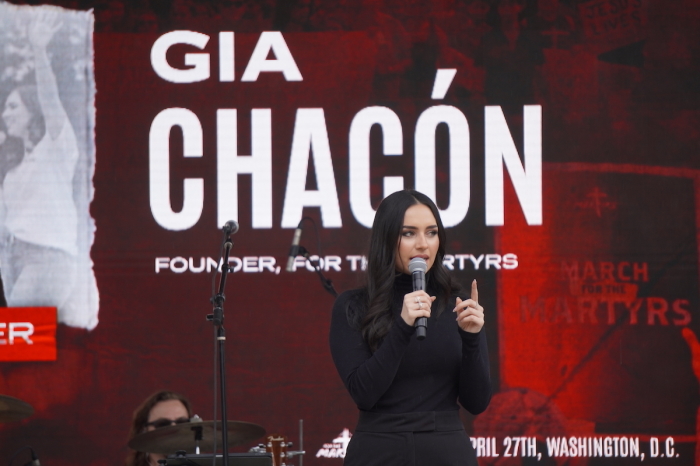
As a Christian, Chacón said her faith inspires her to stand with those suffering globally for following Christ.
“My faith is everything to me. And I really have the persecuted to thank for their inspiration and their boldness and their willingness to lay down their lives for Christ inspired my own faith so deeply. Through my personal relationship with Jesus and the witness of the persecuted, nothing is more important to me than my faith,” Chacón said.
“I have never faced persecution myself. I pray that the Church in the United States of America never faces persecution. Although we do face intimidation. I have sat with people who have firsthand suffered persecution and to hear their stories and what they have suffered for their faith in Christ, and they remain faithful and hopeful in such a huge way, can motivate us in the United States to stand strong no matter the costs.”
Nicole VanDyke is a reporter for The Christian Post.
















